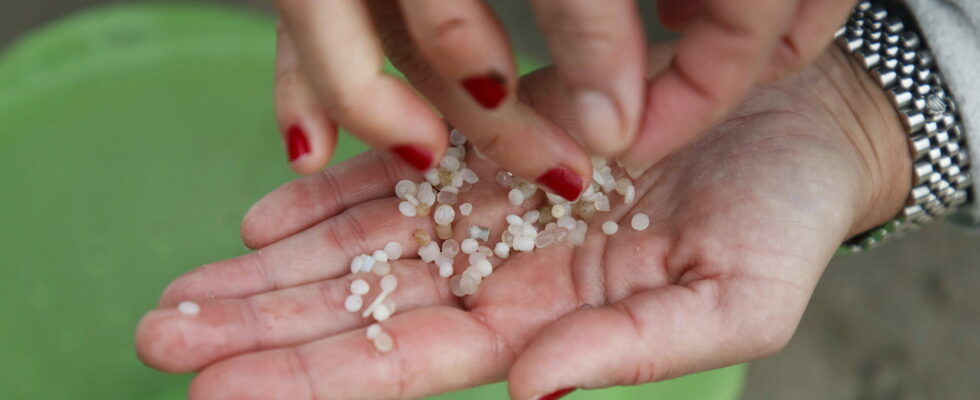Thousands of small white plastic balls were found on the Névez beach (Finistère). This phenomenon is not isolated and represents extraordinary pollution.
Névez beach in Finistère has been invaded by small white plastic balls since Wednesday, February 5. Not much bigger than a pebble, they are thousands to have ended up on this beach, intriguing the inhabitants, as reported West France. Some have even tried to pick them up, but their small size makes this work titanic.
But where do they come from? It is not uncommon to find these plastic balls on the beaches, mainly at the level of the ribs near which pass commercial boats. Indeed, these balls are used to make all kinds of plastic object. Easy to transport, they can be transformed into toys, packaging, or even into a toothbrush. They find themselves by accident in water, because of the fall in containers transporting them.
Eternal pollution
But the problem is that these balls are not only found on the beaches. Called “pellets”, they find themselves in the oceans and are ingested by marine animals, such as turtles or crustaceans, which die because of these marbles. According to the European Commission, there are tens of thousands of tonnes of pellets that would find themselves every year in the oceans and beaches just in Europe. In addition, once “in the environment, these small plastic particles are not biodegradable and cannot be eliminated”. They could also be “toxic to humans”.
The European Commission is trying to adopt a law to limit the risk of pollution. In this case, companies will have to establish risk assessment plans so that the authorities can verify that all preventive measures are taken during the transport, production and processing of these marbles. If the law was adopted, manufacturers should ensure the safety of transport and provide for cleaning plans in the event of accidental leakage. Sanctions could also be applied. Once the new law has been in force, which should be the case given that the member countries have approved to tighten the legislation, a period of three years will be granted to maritime transport to adapt to the new regulation.
